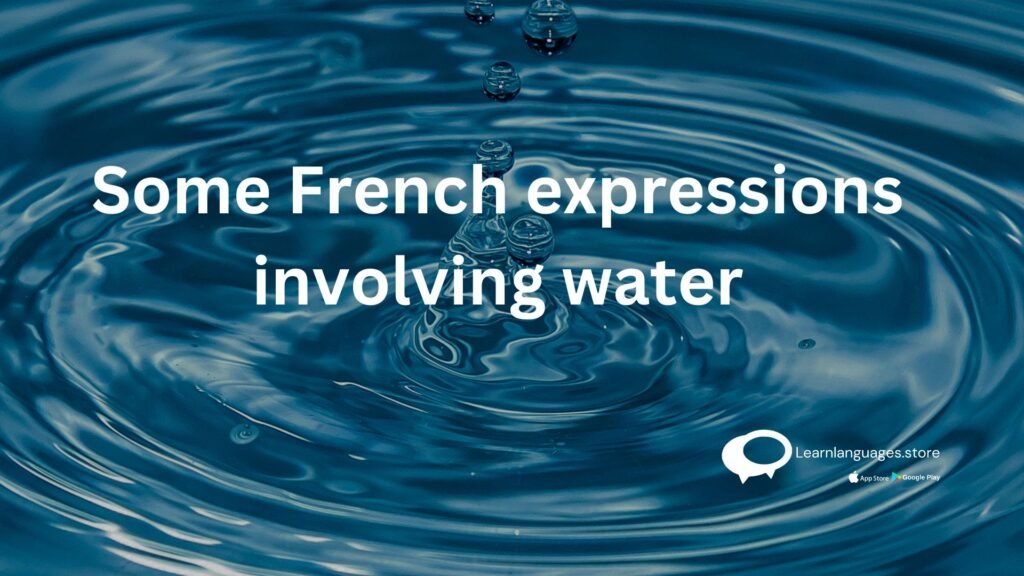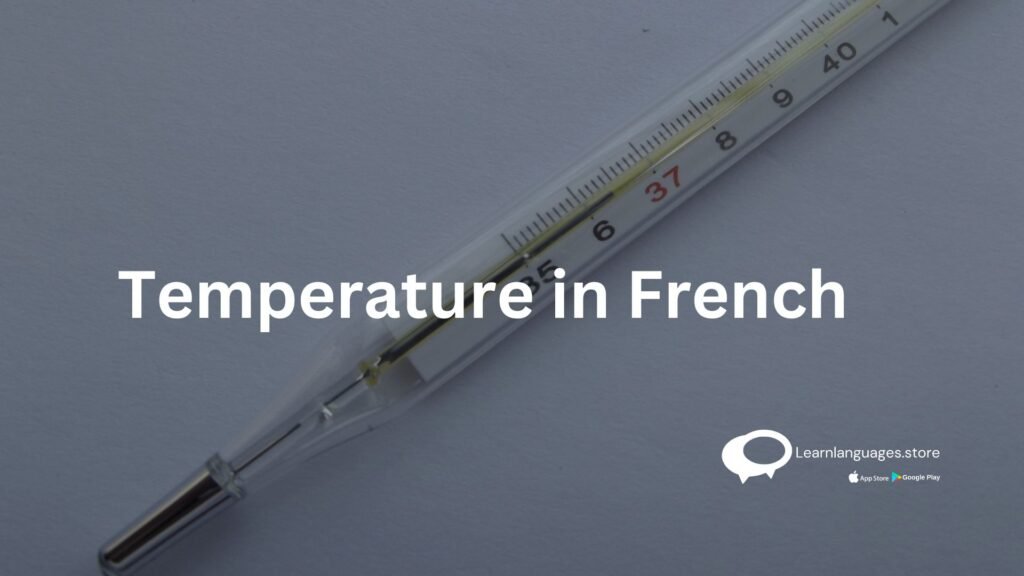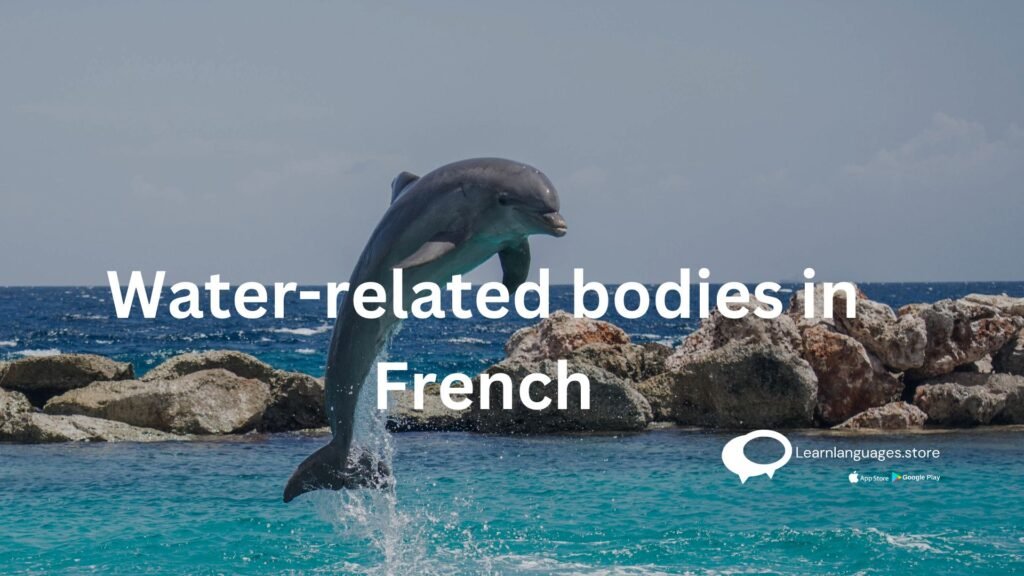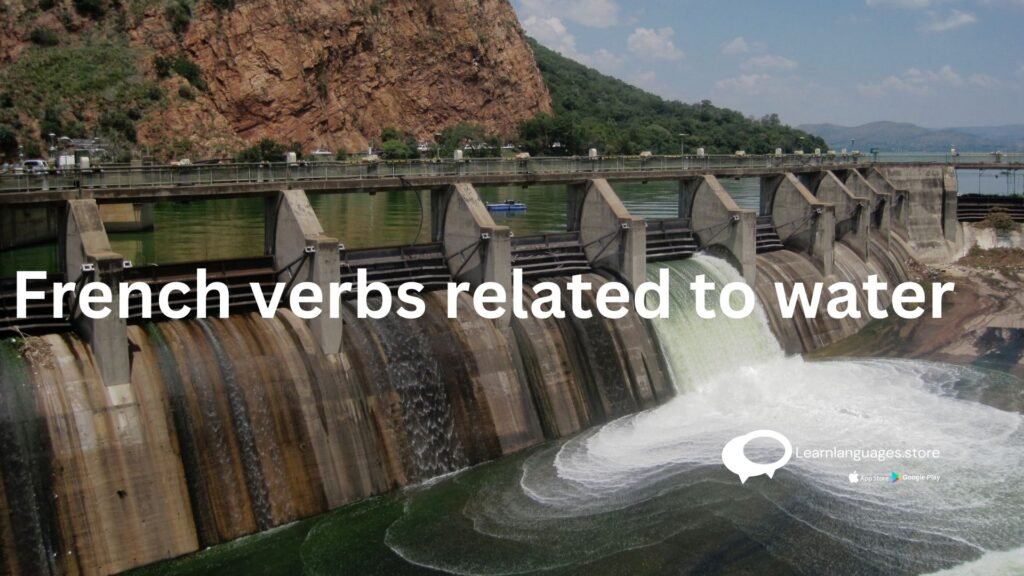Water in French and other 70+ related words and phrases
Water in French and other 70+ related words and phrases
Let us inform you that Évian and Perrier are only two examples of French water. In fact, learning new vocabulary will increase your ability to comprehend written and spoken French.
Estimated reading time: 6 minutes
This article will teach you how to talk about water in French, including the crucial word eau as well as common expressions, the temperature of the water, how wet it is, and more. To improve your French, make a note of all these connected terms and expressions. This is a fantastic chance to expand your vocabulary in French.
How to say water in French
Before we get into all the different water-related words, here’s how to say “water” in its simplest form: Water is referred to as eau. Eau is pronounced similar to an English “o” sound, but less forward in the mouth.

Eau is a feminine noun, so it’s paired with the feminine articles la and une:
– L’eau — the water
– Une eau — a water
– Les eaux — the waters
Some French expressions involving water
– Pleuvoir des cordes — to rain heavily (this phrase is the French equivalent of ‘‘it’s raining cats and dogs’’)

– Couper à l’eau — to cut with water; to water down; to dilute
– Un coup d’eau — a gulp of water
– Avoir de l’eau dans le gaz — things aren’t going well (literally, “to have water in the gas”)
– Porter l’eau à la rivière — to perform a futile task (literally, “to carry water to the river”)
– Tomber à l’eau — to go by the wayside; to be nixed
– Mettre à l’eau — to launch
– Mouiller l’ancre — to drop anchor
– Rather than focusing on the action of dropping the anchor, this verb refers to it getting wet.
– Être mouillé dans un scandale — to get mixed up in a scandal
– Avoir l’eau à la bouche — to have one’s mouth water
– Naviguer en eaux troubles — to fall in with a bad crowd
– Un flot d’injures — a torrent of abuse
– Être à flot — to be on an even keel (financially)
– À l’eau de rose — overly sentimental
– Se mettre à l’eau — to stay sober, to go swimming
– Arroser quelqu’un de vin — to top off someone’s wine
– Arroser quelqu’un avec des pots-de-vin — to “water” someone with a bribe; to grease someone’s palm
– Être en eau — to be in over one’s head; to be covered or bathed in sweat
Everyday French expressions like these are easier to learn when they are used in context. These phrases are common enough that you may encounter them in French literature or television shows.
Temperature in French

– Gelée — freezing
– Glacée — frigid, ice-cold
– Glaciale — icy, glacially cold
– Tiède — tepid, lukewarm
– À température ambiante — room temperature
– Chaude — warm
– Très chaude — hot
– Frémissante — simmering
– Bouillante — boiling
– Brûlante — scalding
Different forms of drinking water
You can be fluent in the most basic and necessary beverage of all with this fluid vocabulary. Note them down and don’t be afraid to use them in your daily conversations.
– L’eau plate — still water
– L’eau pétillante — fizzy/sparkling water
– L’eau de Seltz — Seltzer water
– L’eau minérale — mineral water
– L’eau de source — spring water
– L’eau purifiée (or l’eau épurée) — purified drinking water
– L’eau distillée — distilled water
– L’eau en bouteille — bottled water
– L’eau courante — running water
– L’eau du robinet — tap water
– L’eau trouble — cloudy water
French terms related to wet weather
– La brume — mist
– La bruine — drizzle
– L’averse — rain shower
– La chute de pluie — rainfall (a single, local instance)
– Les précipitations — rainfall (a cumulative rainfall measurement)
– Les fortes pluies — heavy rainfall
– Le déluge — deluge
– La pluie torrentielle — torrential downpour
– Une inondation — flood
– Un orage — thunderstorm
– La pluie verglaçante — freezing rain
– La neige fondue — sleet (literally, “melted snow”)
All these terms are widely used in French media. You can look for such terms in French books as well. In fact, a book is a great tool to learn a new language. You can use books to learn French on your own. No one can replace the importance of books in knowledge building. Read as much as you can and try to apply that knowledge to gain practical exposure.
Degree of wetness in French
– Humide — damp, moist
– Trempé / Trempée — soggy (clothes), drenched, soaked
– Détrempé / Détrempée — soggy (ground), waterlogged, sodden
– Mou / Molle — soggy (used with things like breakfast cereal, chips or bread)
– Mouillé / Mouillée — wet
– Être tout mouillé — to be all wet, to be wet through
– Saturé / Saturée — saturated
Water-related bodies in French

– La nappe phréatique — groundwater; water table
– La flaque — puddle, pool, spill
– La piscine — swimming pool
– Le lac — lake
– Le fleuve — large river
– La rivière — somewhat small, narrow or shallow river
– La mer — sea
– Le bras de mer — inlet
– Le ruisseau — stream, brook or creek
– Le détroit — strait
– Un étang — pond
– Un océan — ocean
– La marée — tide
French verbs related to water

– Arroser au jet —to hose something off or down
– Irriguer — to irrigate
– Pleurer — to cry; to weep
– Larmoyer — to get teary-eyed, to tear up, to snivel; to get watery eyes; to get maudlin
– Pleuvoir — to rain
– Bruiner — to drizzle
– Humecter — to dampen (a rag or cloth)
– Tremper — to soak
– Saturer — to saturate
Conclusion
Now that you have many French words in your vocabulary list and with this pool of French water words at your disposal, you can confidently navigate water-related content and conversations in French.
Learn Languages Store
Vashi,
Email: services@learnlanguages.store










